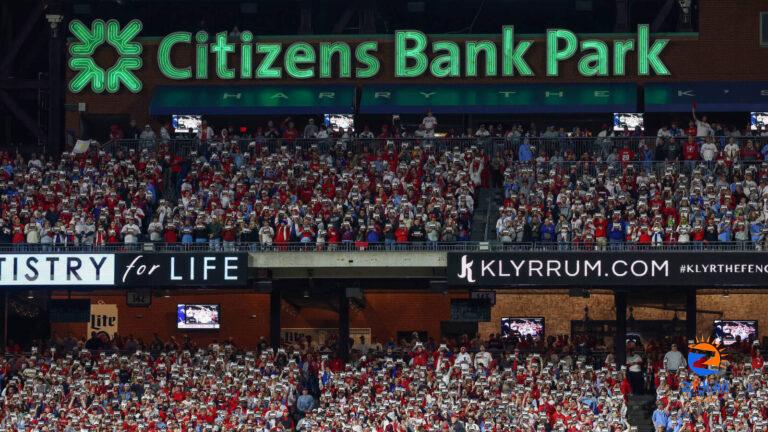
[ad_1]
Despite having played eight more road games than home contests thus far, the Phillies (30-32) have been hit with 14 timer violations at their ballpark against only five away from the City of Brotherly Love. According to Gelb’s report, there were 25 violations in the first 26 games at Citizens Bank Park.
Gelb wrote that due to the “hundreds of pitches thrown” and how a violation “typically has no bearing on a game’s outcome,” the discrepancy “might go unnoticed.”
“But a quicker home clock, players said, is felt beyond the violations assessed,” Gelb wrote.
“I pitched in Cincinnati and I felt
like I could catch the ball and turn around and then (the clock) would start,” Philadelphia pitcher Matt Strahm said, per Gelb. “When I got home and
threw that next start, I threw fewer pitches but was way more winded by the
third inning. I was like, ‘What the heck is going on?’ As soon as I catch the
ball and by the time I look at the pitch clock, it’s somehow at 13 seconds.”
Phillies ace Aaron Nola had a dominant 12-strikeout effort against the Detroit Tigers on Monday at home, where he had a no-hitter into the seventh inning and two of his punchouts came after Detroit batters were given automatic strike threes. Following the contest, Nola let reporters in on the pitch clock “conspiracy theory” that was gaining a following.
“I think the pitch clock was a little too fast, though. It seems to be
that way when we get back home,” Nola said.
“It just seems a lot faster, you know?” fellow starter Taijuan Walker added. “You just got the ball and you look up and there’s only 10 seconds left.”
First-year Phillies utilityman Josh Harrison agreed, calling the ballpark’s clock “the fastest,” according to Gelb, and pitching coach Caleb Cotham added that it feels “like the clock is fastest here,” but the sentiment was “very subjective.”
The Phillies beat writer noted that through Wednesday’s action, there have been more pitch clock violations in Philadelphia than any other MLB stadium this season, according to research by STATS Perform. Gelb added that “the numbers could even out over time
but, right now, it is statistically significant.”
Per The Athletic report, when asked about timer protocol by the stadium, an MLB spokesman said that said they were “tracking all data related
to the new rules” and based on their monitoring, they hadn’t “detected any
concerning trends.”
The Phillies reportedly submitted their concerns to the MLB office “more than a month ago” and after an investigation, the league said they’d found some “inconsistencies in how the timer was operated and that it would be addressed.” Gelb wrote that it’s “unclear if that happened.”
Following a recent road trip, the pitch clock discrepancy was still noticeable to players, so the Phillies submitted another inquiry to the league office.
Tigers catcher Eric Haase was one of Nola’s automatic strikeout victims on Monday, and while he said “There have to be better
steps to make it the same everywhere,” he didn’t think it was necessarily an advantage or disadvantage for anybody.
Strahm disagreed.
“It’s not an advantage or a
disadvantage,” Haase said. “We’re just asking that
(at-bats) not get thrown away.”
“The boat rocks both ways,
no matter what park you’re in,” Strahm added. “It’s just we have 81 games
here and it’s the fastest clock in the league. That’s going to take a toll on
us over 81 games.”
[ad_2]